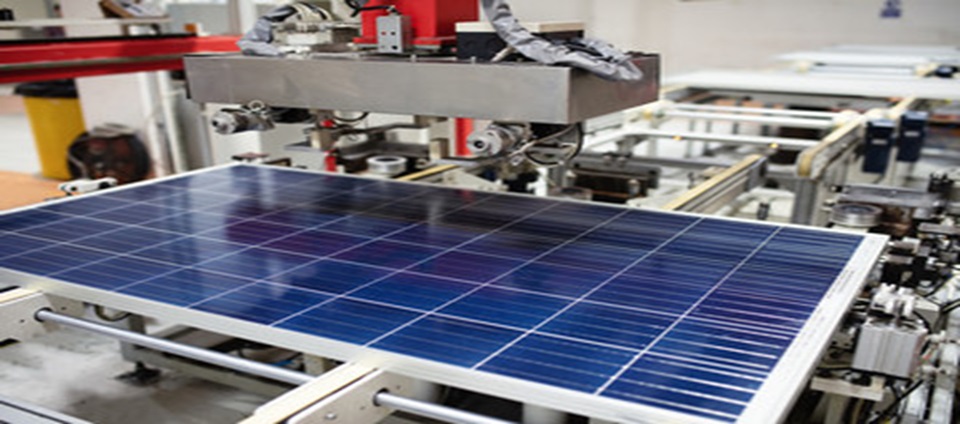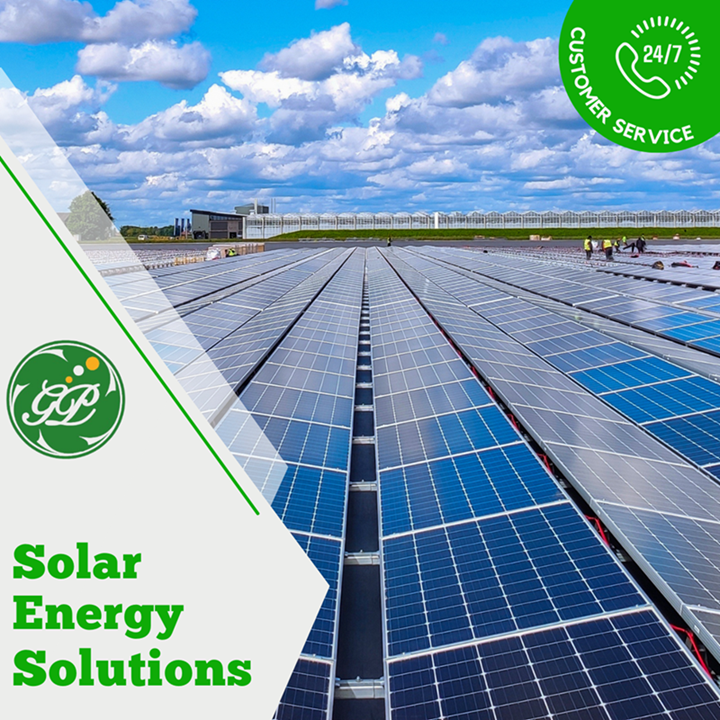The solar energy sector has emerged as a vibrant and rapidly growing industry, driven by increasing global demand for clean and sustainable energy solutions. With advancements in technology and supportive governmental policies, numerous business opportunities are available for entrepreneurs and investors looking to tap into this sector. This blog post will look into four key subtopics that highlight the potential within the solar energy industry: solar panel manufacturing, solar installation services, solar energy storage solutions, and solar energy consultancy.
1. Solar Panel Manufacturing

Solar panel manufacturing involves creating devices that turn sunlight into electricity. It starts with making silicon wafers, which are then treated and put together to form solar cells. These cells are connected and covered to make a solar panel. The process also includes testing to make sure the panels work well. As more people want renewable energy, making solar panels is important for finding sustainable energy solutions. The process involves a few detailed steps. It starts with making silicon wafers by purifying and crystallizing silicon. Then, these wafers are treated to improve their electrical properties. Next, the treated wafers are turned into solar cells by adding metal contacts and coatings. These solar cells are connected and covered with a protective layer to make a full solar panel.
The manufacturing process also includes testing and quality control to ensure the solar panels work well and last a long time. This involves checking how well they work, how they handle different temperatures, and how they hold up in different environments. As more people look for sustainable energy, improving how we make solar panels is important for using solar power as a good and eco-friendly energy source.
Market Demand and Growth
The global market for solar panels has seen exponential growth over the past decade. According to the International Energy Agency (IEA), solar photovoltaic (PV) capacity is set to expand by 150 GW annually, becoming the largest area of growth in renewable energy. This surge in demand is driven by several factors, including decreasing costs of solar technology, increased efficiency, and heightened awareness of climate change. Countries worldwide are adopting ambitious renewable energy targets, further bolstering the market for solar panels.
Technological Innovations
Technological advancements are at the forefront of the solar panel manufacturing industry. Innovations such as bifacial solar panels, which capture sunlight on both sides and perovskite solar cells, which offer higher efficiency at a lower cost, are transforming the market. Businesses entering this field need to stay abreast of these developments to remain competitive. Investing in research and development (R&D) can lead to the creation of cutting-edge products that meet the evolving needs of the market.
Investment and Infrastructure
Starting a solar panel manufacturing business requires significant capital investment in equipment, technology, and infrastructure. Entrepreneurs need to consider the costs of establishing production facilities, sourcing raw materials, and implementing quality control measures. Additionally, building strong relationships with suppliers and distributors is crucial for ensuring a steady supply chain and market reach.
Sustainability and Eco-Friendly Practices
Sustainability is a core principle in the solar industry. Manufacturing processes must adhere to environmentally friendly practices to minimize the ecological footprint. This includes recycling waste materials, reducing water and energy consumption, and using non-toxic substances. Companies that prioritize sustainability not only contribute to environmental preservation but also appeal to eco-conscious consumers and investors.
2. Solar Installation Services

Solar installation services involve the design, installation, and maintenance of solar energy systems for residential, commercial, and industrial properties. This includes solar panels, inverters, mounting structures, and other components necessary to harness solar energy and convert it into electricity.
One of the main reasons why solar installation services are a great business opportunity is the increasing demand for renewable energy solutions. As concerns about climate change and the environment continue to rise, more people are looking to reduce their carbon footprint and transition to cleaner, more sustainable energy sources. Solar energy is a clean and renewable alternative to fossil fuels, making it an attractive option for individuals and businesses looking to reduce their energy costs and environmental impact.
Market Scope and Opportunities
The installation of solar panels is a critical aspect of the solar energy value chain. The market for solar installation services encompasses residential, commercial, and industrial sectors. Homeowners are increasingly adopting solar energy to reduce electricity bills and carbon footprint. Similarly, businesses are integrating solar solutions to achieve energy independence and sustainability goals. The commercial sector, including shopping malls, office buildings, and manufacturing facilities, offers substantial opportunities for large-scale installations.
Skills and Expertise
To succeed in the solar installation business, companies must possess a skilled workforce with expertise in electrical systems, roofing, and general construction. Proper training and certification, such as those offered by the North American Board of Certified Energy Practitioners (NABCEP), ensure that technicians are knowledgeable and proficient in installing solar systems. Investing in employee training enhances service quality and customer satisfaction.
Regulatory Compliance and Safety
Navigating the regulatory landscape is essential for solar installation businesses. Different regions have varying regulations regarding permits, zoning laws, and safety standards. Companies must ensure compliance with local and national regulations to avoid legal issues and project delays. Safety is another critical consideration. Implementing rigorous safety protocols protects workers and clients, fostering a reputation for reliability and professionalism.
Customer Education and Support
Educating customers about the benefits of solar energy and the installation process is vital for market growth. Providing comprehensive consultations, transparent pricing, and post-installation support helps build trust and confidence among potential clients. Offering maintenance services and warranties further enhances customer satisfaction and long-term loyalty.
3. Solar Energy Storage Solutions

Importance of Energy Storage
Energy storage is a pivotal component of the solar energy ecosystem. Solar panels generate electricity during daylight hours, but energy demand often peaks in the evening. Effective storage solutions, such as batteries, enable the retention of excess energy for use during periods of low solar generation. This ensures a consistent and reliable power supply, addressing one of the primary challenges of solar energy – intermittency.
Advances in Battery Technology
The development of advanced battery technologies has revolutionized the energy storage market. Lithium-ion batteries, for example, offer high energy density, efficiency, and longevity. Emerging technologies, such as solid-state batteries and flow batteries, promise even greater performance and safety. Businesses specializing in energy storage can capitalize on these advancements to offer cutting-edge solutions that meet diverse energy needs.
Market Applications and Opportunities
The market for solar energy storage solutions spans residential, commercial, and utility-scale applications. Homeowners use battery systems to achieve energy independence and resilience against grid outages. Businesses and industrial facilities integrate storage solutions to manage energy costs and ensure uninterrupted operations. Utility-scale projects, including solar farms and microgrids, rely on large-capacity storage systems to stabilize the grid and integrate renewable energy sources.
Business Models and Revenue Streams
Companies in the energy storage sector can explore various business models and revenue streams. These include selling and installing battery systems, offering energy management services, and providing software solutions for monitoring and optimizing energy usage. Leasing and financing options can make storage solutions more accessible to a broader customer base, driving market adoption.
4. Solar Energy Consultancy

Solar energy consultancy is a thriving business opportunity in the rapidly growing solar industry. As more and more businesses switch to renewable energy sources, the demand for professional guidance and expertise in solar energy systems becomes imperative.
A solar energy consultancy firm specializes in providing valuable information and advice on the installation, maintenance, and optimization of solar energy systems. This can include assessing a client’s energy needs, designing a customized solar energy system, sourcing and installing the necessary equipment, and providing ongoing support and maintenance services.
One of the key benefits of starting a solar energy consultancy business is the potential for profitability. With the increasing popularity of solar energy as a clean and sustainable energy source, there is a high demand for knowledgeable professionals who can help individuals and businesses make the switch to solar power.
Additionally, the solar industry is constantly evolving, with new technologies and advancements being developed regularly. By staying up-to-date on the latest trends and innovations in the industry, a solar energy consultancy firm can offer clients the most cutting-edge solutions for their energy needs.
Another advantage of starting a solar energy consultancy business is the opportunity to make a positive impact on the environment. By helping clients transition to solar power, consultants can reduce their carbon footprint and contribute to a more sustainable future.
Services and Expertise
Solar energy consultants offer a wide range of services, including feasibility studies, site assessments, financial analysis, and system design. They assist clients in navigating incentives and subsidies, securing permits, and selecting the right technologies. Expertise in emerging trends, such as net metering, feed-in tariffs, and virtual power plants, enables consultants to provide cutting-edge advice.
Building a Successful Consultancy
Establishing a successful solar energy consultancy requires a combination of technical knowledge, business acumen, and strong industry connections. Consultants should stay updated on the latest industry developments and maintain a network of contacts with manufacturers, installers, and regulators. Effective communication skills are essential for conveying complex technical information to clients in an understandable and actionable manner.
Conclusion
The solar energy sector offers a multitude of business opportunities across various segments, from manufacturing and installation to energy storage and consultancy. Each subtopic presents unique challenges and rewards, making it crucial for entrepreneurs to conduct thorough market research and strategic planning. By embracing innovation, prioritizing sustainability, and delivering high-quality services, businesses can thrive in the dynamic and rapidly expanding solar energy industry. As the world continues its transition to a sustainable energy future, those who seize these opportunities stand to benefit both financially and environmentally.


